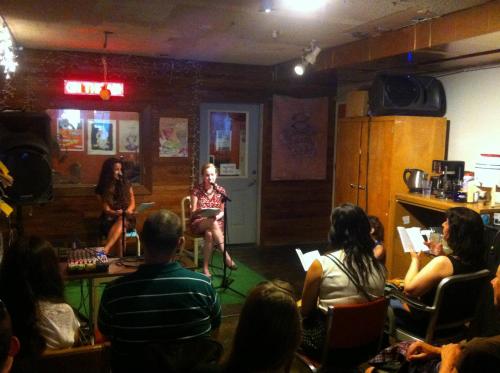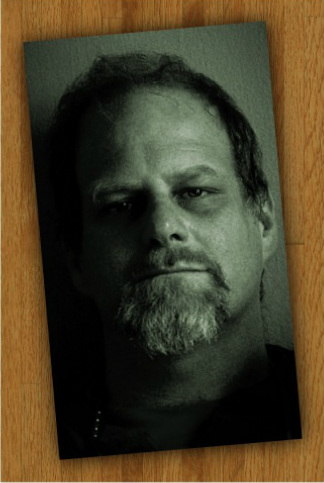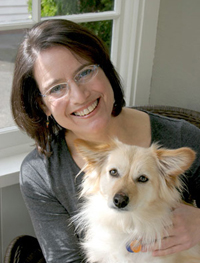Anca Szilagyi on Home and Memory
by CM
As we prepare for The Furnace Says Goodnight, Kyle Getz is interviewing Furnace contributors about their past performances. Next up is Anca Szilagyi! Please join us at Hollow Earth Radio on Friday, December 2 at 8 pm for a special collaborative performance and party. Without further ado:

Anca performs “More Like Home Than Home” With Kristen Millares Young. August 1, 2012
KG: After your reading, you said that, to research the political context of the story, “I followed my curiosity.” How did that research process compare to your own creative process when developing the characters and the story?
I started writing “More Like Home Than Home” seeking comfort. I’d finished what must have been the fourth draft of my novel Dirty, a very difficult story about a teenage runaway and Argentina’s Dirty War. I started burrowing into this idea of what feels most like home, which became childhood memories, which at the time felt like “just” self-indulgence and play, and it wasn’t until the story was done that I realized that is actually an important part of the creative process. The story draws on family stories and every question about Romania or immigration turned into a google search for historical context. I added the research as footnotes that I intended as just for myself, to be deleted later. But I liked how they were starting to contradict the more comfortable, child-like story, so I kept them in and added to it with narration as well, which created a tension and texture in the story that I felt it needed.
KG: You included another voice, Kristen Young, to read the footnotes of the story. What was it like working with another reader? How was reading for the Furnace different than other readings you’ve done?
Working with Kristen was wonderful because she brings energy to everything she does. We practiced several times, recording ourselves and listening and trying again. And this is a long story to be practicing several times. Only after the fact, listening to the recording and hearing audience reactions, I realized she has a different timbre (Lillian Nickerson called it brassy) that, in contrast with my high-pitched voice, helped bring out, aurally, the two threads of the story. This was the first reading in which I had another reader join me and the first reading in which I was the only person sharing work. The crowd was so warm and I felt really listened to. It was one of the aspects of our series that Corinne and I were excited about: featuring just one story at a time so that the audience can truly listen. Later, I contributed my voice to Brenda Miller’s “We Regret to Inform You” and at an AWP event in Seattle, I read parts of Talia Shalev’s poem “Take Yourself Out” with her. These were special moments too, physically contributing to someone else’s creation.



 As we prepare for
As we prepare for 
 As we prepare for
As we prepare for 


 Friends! After a four-year run the Furnace will say goodnight. We are so grateful to the Seattle literary community. Join us on December 2nd, 8-10 pm at Hollow Earth Radio, 2018 A E Union St, or listen online live at
Friends! After a four-year run the Furnace will say goodnight. We are so grateful to the Seattle literary community. Join us on December 2nd, 8-10 pm at Hollow Earth Radio, 2018 A E Union St, or listen online live at